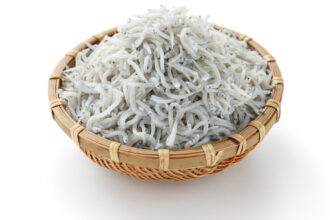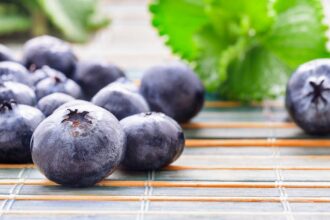Beetroot juice may help reduce blood pressure in older adults by altering the composition of bacteria in the mouth, according to the most extensive study of its kind. Conducted by researchers at the University of Exeter and published in Free Radical Biology and Medicine, the study examined how nitrate-rich beetroot juice affects both blood pressure and the oral microbiome in different age groups. While previous research has shown that dietary nitrate can lower blood pressure, this new investigation provides fresh insights into how age-specific microbial changes in the mouth may influence the body’s ability to process dietary nitrate into nitric oxide, a molecule essential for healthy blood vessel function.
Nitrate, a compound naturally found in high quantities in leafy and root vegetables, is an essential precursor for nitric oxide production in the human body. Nitric oxide supports vascular health by helping to dilate blood vessels and regulate blood pressure. As people age, however, their bodies tend to produce less nitric oxide, and this decline is associated with higher rates of hypertension and cardiovascular disease. In this study, older adults who consumed concentrated beetroot juice twice daily for two weeks experienced a significant reduction in blood pressure. This effect was not observed in the younger participants, suggesting that age-related factors may mediate the impact of dietary nitrate on vascular function.
The study involved 75 healthy participants: 36 older adults in their 60s and 70s, and 39 younger adults under the age of 30. All were recruited through the NIHR Exeter Clinical Research Facility and took part in a double-blind crossover trial. Each participant consumed nitrate-rich beetroot juice for two weeks and, after a two-week “washout” period, drank a placebo juice with the nitrate removed. Before and after each intervention, saliva samples were collected and analysed using gene sequencing to map the bacterial species present in the oral cavity. The researchers found that the composition of the oral microbiome shifted significantly in both age groups, but the changes were more pronounced and beneficial in the older cohort.
Specifically, the older group experienced a reduction in the prevalence of Prevotella, a genus of bacteria that has been associated with inflammation and impaired nitrate conversion. Simultaneously, there was an increase in Neisseria, a group of bacteria known to aid in the conversion of nitrate into nitric oxide. These changes coincided with a drop in blood pressure only in the older adults, reinforcing the idea that modifications to the oral microbiome may be responsible for improving nitrate metabolism in this age group. The younger group, who started with lower baseline blood pressure and a presumably more favourable oral microbiome, did not show any significant changes in blood pressure during the trial.
Professor Anni Vanhatalo, the study’s lead author, explained that these findings underscore the importance of nitrate-rich diets, particularly for older adults who naturally produce less nitric oxide. “Older adults tend to have higher blood pressure and reduced nitric oxide availability, which are both risk factors for cardiovascular complications. Our findings suggest that increasing the intake of nitrate-rich vegetables may be a simple and effective way to support vascular health as we age,” she said. She also noted that beetroot is just one of many nitrate-rich vegetables, with others including spinach, rocket, fennel, celery and kale—offering a variety of dietary choices for those who may not enjoy the taste of beetroot.
Co-author Professor Andy Jones highlighted the broader implications of the research, noting that this study provides compelling evidence that diet can influence the microbiome in ways that have direct physiological effects. “What we’ve shown is that dietary nitrate not only supports blood pressure regulation but also reshapes the microbial community in the mouth, potentially reducing systemic inflammation,” he said. Dr Lee Beniston of the BBSRC, which funded the study, added that this work exemplifies how bioscience can illuminate the complex links between nutrition, microbiota, and healthy ageing. As the population continues to age, such research opens new avenues for non-pharmaceutical interventions to support cardiovascular health and overall wellbeing.
More information: Anni Vanhatalo et al, Ageing modifies the oral microbiome, nitric oxide bioavailability and vascular responses to dietary nitrate supplementation, Free Radical Biology and Medicine. DOI: 10.1016/j.freeradbiomed.2025.07.002
Journal information: Free Radical Biology and Medicine Provided by University of Exeter








